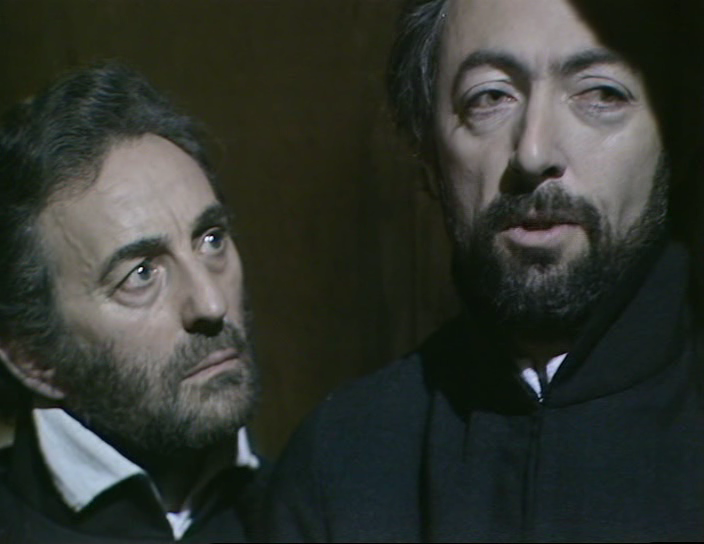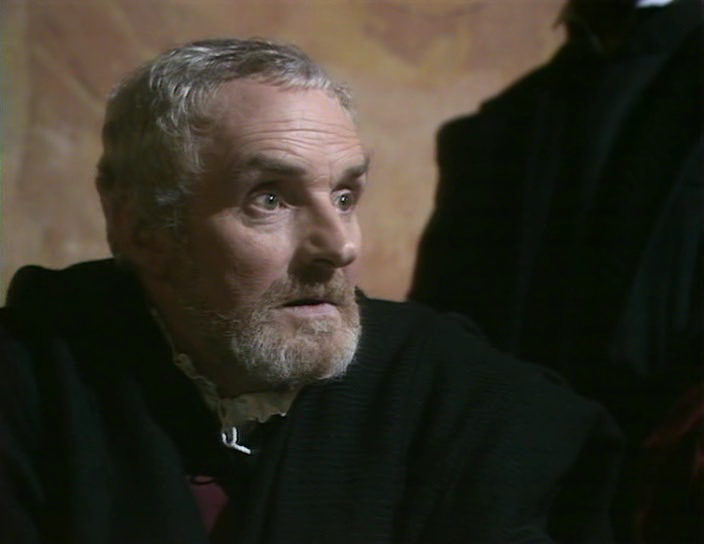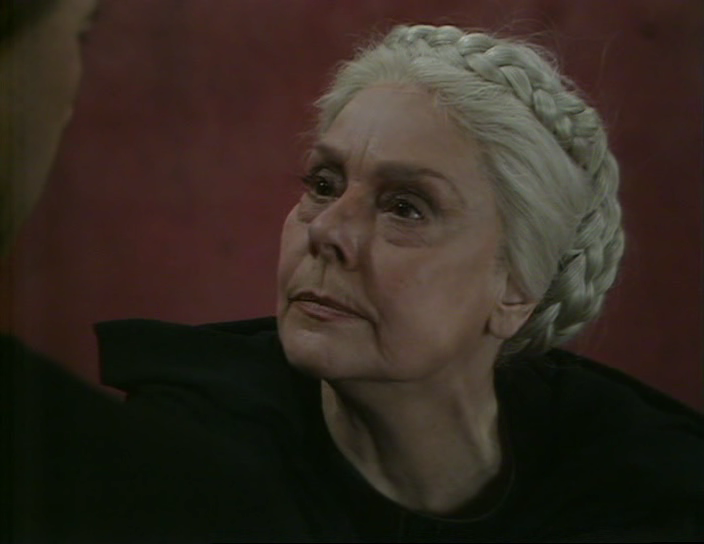

Making its debut with Romeo and Juliet on 3 December 1978, and concluding nearly seven years later with Titus Andronicus on 27 April 1985, the BBC Television Shakespeare project was the single most ambitious attempt at bringing the Bard of Avon to the small screen, both at the time and to date.
Producer Cedric Messina was already an experienced producer of one-off television Shakespeare presentations, and was thus ideally qualified to present the BBC with a daunting but nonetheless enticingly simple proposition: a series of adaptations, staged specifically for television, of all 36 First Folio plays, plus Pericles (The Two Noble Kinsmen was considered primarily John Fletcher's work, and the legitimacy of Edward III was still being debated).
The scale of Messina's proposal, far greater than that of previous multi-part Shakespeare series such as An Age of Kings (BBC, 1960) and Spread of the Eagle (BBC, 1963), required an American partner in order to guarantee access to the US market, deemed essential for the series to recoup its costs. Time-Life Television agreed to participate, but under certain controversial conditions - that the productions be traditional interpretations of the plays in appropriately Shakespearean period costumes and sets, designed to fit a two-and-a-half-hour time slot.
The running-time requirement was swiftly jettisoned when it became clear that the major tragedies in particular would have suffered severely, but other artistic restrictions remained largely in place throughout. Although later productions under Messina's successors Jonathan Miller and Shaun Sutton would be more experimental, Miller was unable to persuade first-choice directors such as Peter Brook and Ingmar Bergman to take part, and Michael Bogdanov resigned from Timon of Athens (eventually tx, 4/16/1981, with Miller himself directing) after his modern-dress interpretation was considered too radical a departure.
This gave the BBC Television Shakespeare cycle the reputation of being overly staid and conventional, which was not always deserved. Though Messina's own productions (1978-80) were largely conservative, Jonathan Miller (1980-82) revamped things both visually (thanks to a design policy of sourcing sets and costumes from great paintings of the era in which the play was set) and in terms of direction and casting, in some cases using popular actors with little or no Shakespeare experience (John Cleese as Petruchio, Bob Hoskins as Iago) to attract new and younger audiences.
Under Miller, directors such as Jack Gold, Jane Howell and Elijah Moshinsky were encouraged to be more adventurous, with Howell in particular adopting such a stylised approach for The Winter's Tale (tx. 8/2/1981) and the Henry VI/Richard III cycle (tx. 2-23/1/1983) that they pushed the definition of "traditional" to the limit, but also garnered the series some of its best reviews. Miller's aesthetic policies continued under Shaun Sutton (1982-85), who brought the project to a belated close.
Whatever its artistic reputation, there was no doubt that the BBC Television Shakespeare was a commercial triumph, breaking even financially by 1982 (ahead of expectations) and fully justifying Messina's gamble. Its success was helped by the rapid growth of video recorders in schools, creating a secondary market that was much bigger than initially predicted - though the initial decision to sell the plays only as a complete set provoked complaints from people who baulked at paying the substantial asking price because they were after a smaller selection or individual titles. The BBC eventually released some of the more popular titles separately, but it was not until late in 2005 that the entire series was available individually on DVD at a competitive price.
Although the BBC Television Shakespeare project as a whole met with a mixed reception, it had several positive virtues. Chief among them was the fact that its completist remit meant that several of the more obscure plays received their first television adaptation, and in most cases the BBC version remains the only one. Happily, such productions as Henry VIII (tx. 25/2/1979), Cymbeline (tx. 10/7/1983), Pericles (tx. 11/6/1984) and Titus Andronicus were considered amongst the cycle's most impressive achievements, with Henry VIII subsequently voted the best production of all by the Shakespeare Association of America.
For the BBC Television Shakespeare, tx. 21/4/1984, 145 mins, colour
Director Elijah Moshinsky
Production Companies BBC Television, Time-Life Television
Producer Shaun Sutton
Script Editor David Snodin
Designer Dick Coles
Music Stephen Oliver
Cast: Alan Howard (Caius Marcius, later Coriolanus); Irene Worth (Volumnia); Joss Ackland (Menenius); Mike Gwilym (Aufidius); Joanna McCallum (Virgilia); Patrick Godfrey (Cominius); Peter Sands (Titus Lartius); John Burgess (Sicinius); Anthony Pedley (Brutus)

Although a mighty warrior on the battlefield, Caius Martius Coriolanus finds himself comprehensively outmanoeuvred when he turns to politics.

The most accessible small-screen production of a surprisingly rarely-filmed play, the BBC Television Shakespeare's Coriolanus was broadcast towards the end of the cycle. Given that director Elijah Moshinsky was also responsible for some of the most visually beautiful productions of the entire BBC Shakespeare project (All's Well That Ends Well, A Midsummer Night's Dream, Cymbeline, Love's Labour's Lost), it's somewhat startling to find that Coriolanus is relatively spartan by comparison, with sets and props stripped down to a minimum and the lighting correspondingly functional.

This was deliberate: Moshinsky felt that his usual painterly approach wouldn't suit this particular play, whose essence lies in its many impassioned verbal debates. Consciously avoiding the usual scenery-dominated approach to visualising ancient Rome, Moshinsky and designer Dick Coles intensified the feeling of claustrophobia by eliminating all shots of skies and even windows. Script editor David Snodin made some heavy cuts to the text (a full production should run well over three hours), particularly to scenes not featuring the principal characters, in order to add greater urgency to the central story of Coriolanus' downfall.
Moshinsky shied away from imposing a political interpretation on the play, believing that this approach (a common one in the theatre) detracted from what he saw as the play's main theme, "the doubt-ridden hero who travelled through the political and military world and through his own society and made him an outcast and finally a suicide." It's as much a domestic drama as it is a political one, and the small-scale approach stresses this - even the crucial battle scenes are stylised and simplified.
Alan Howard was always the first choice for the title role, having played what was widely regarded as his generation's definitive Coriolanus for the Royal Shakespeare Company in the late 1970s. His interpretation catches the character's pride and arrogance but also his underlying shyness and insecurity - best displayed in the scene where he attempts to mingle with the public but finds himself quite unable to relate to them.
As Volumnia, Coriolanus' mother and ultimate nemesis, Irene Worth neatly judges her balance of maternal loyalty and fierce patriotism, while Joss Ackland's deceptively jovial Menenius stands out amongst the various Roman politicians. Mike Gwilym's appropriately Machiavellian Aufidius is given a reading that stresses the homoerotic elements of his relationship with his arch-rival - both in terms of his delivery of the text and Moshinsky's staging of their various one-on-one battlefield encounters.
Michael Brooke
http://rapidshare.com/files/115422797/CORIOLANUS_BBC.part01.rar
http://rapidshare.com/files/115423442/CORIOLANUS_BBC.part02.rar
http://rapidshare.com/files/115424174/CORIOLANUS_BBC.part03.rar
http://rapidshare.com/files/115424790/CORIOLANUS_BBC.part04.rar
http://rapidshare.com/files/115425363/CORIOLANUS_BBC.part05.rar
http://rapidshare.com/files/115425969/CORIOLANUS_BBC.part06.rar
http://rapidshare.com/files/115426598/CORIOLANUS_BBC.part07.rar
http://rapidshare.com/files/115427413/CORIOLANUS_BBC.part08.rar
http://rapidshare.com/files/115428005/CORIOLANUS_BBC.part09.rar
http://rapidshare.com/files/115428542/CORIOLANUS_BBC.part10.rar
http://rapidshare.com/files/115429117/CORIOLANUS_BBC.part11.rar
http://rapidshare.com/files/115429710/CORIOLANUS_BBC.part12.rar
http://rapidshare.com/files/115429853/CORIOLANUS_BBC.part13.rar
no pass



0 comments:
Post a Comment